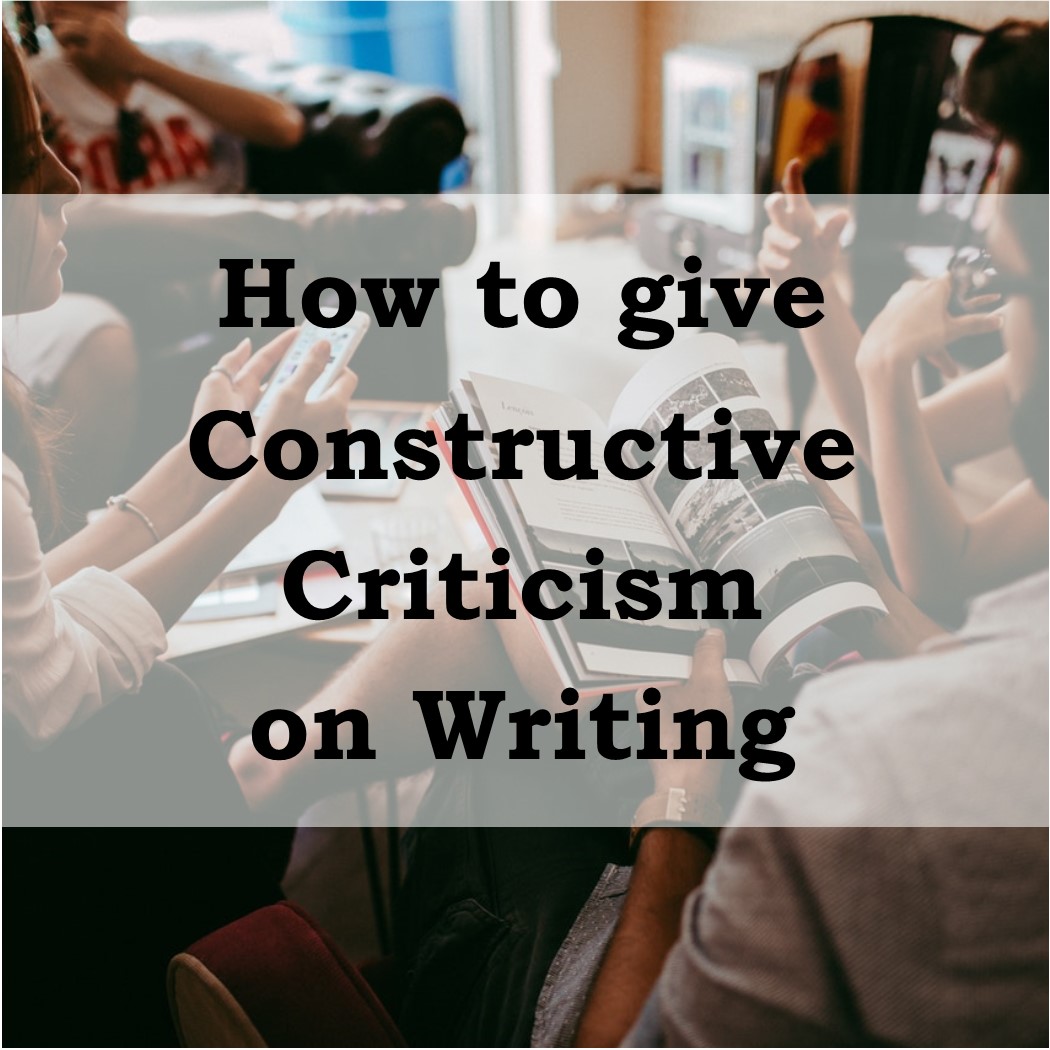How to Give Constructive Criticism on Writing
Last updated on July 14th, 2022 at 08:56 am
This article is part two of a series about starting your own creative writing group/club. Part one is here. Topics will include giving constructive criticism, running a workshop, and writing games/prompts.
For feedback to be helpful, the writer must be open to criticism, and the criticism must be focused and kind. Here are some tips for your group on giving constructive criticism:
- Ask the writer what kind of feedback they are looking for
- Are they looking for plot feedback? Character feedback? Are they primarily concerned about grammar and sentence structure?
- Be aware of the writer’s level/experience
- Are they beginners or have they been writing for a while? Don’t assume they know everything you might know, but don’t be condescending.
- Be honest but not mean
- Don’t forget that it’s the group’s job to be supportive as well
- If a writer receives too much negative feedback, their brain will start to go numb. They won’t know what issue to focus on, and they may be become discouraged.
- Always start with some positives
- Did you like a character? Was there a scene you enjoyed? Did you think the dialogue was realistic?
- Don’t give false praise
- Your group needs to trust your feedback. Don’t tell them their pacing works if you spent a good chunk of their work bored. If you’re struggling to find something to compliment, go through each element in your mind. Every writer does something well.
- Be as specific as you can
- When you’re describing an issue, name a character, scene, line of dialogue, etc.
- Keep their audience in mind (because it might not be you)
- Keep their goals in mind
- Are they hoping to impress themselves, their friends, or a publisher?
- Direct your criticism towards the writing, not the writer
- Suggest possible solutions when you can
- Remember that you are only giving suggestions – it is ultimately up to them whether or not to take your advice


2 Comments